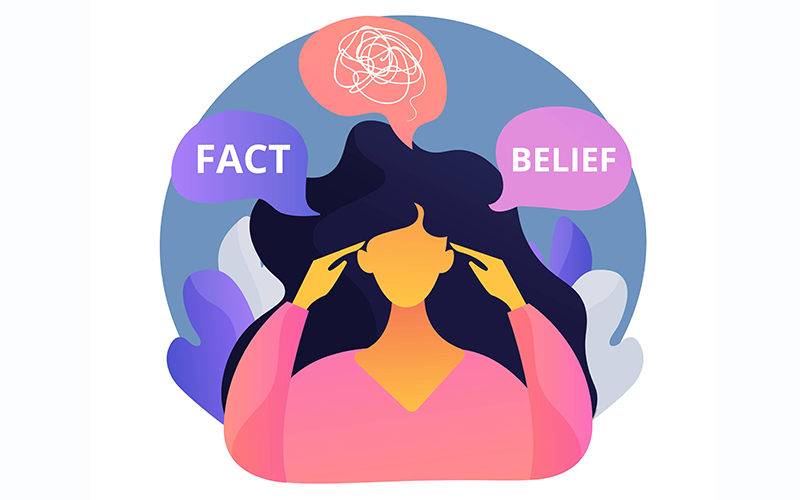Cognitive Dissonance FAQs

1. What is cognitive dissonance?
Cognitive dissonance is the discomfort we feel when we hold two conflicting beliefs, attitudes, or behaviors at the same time. For example, imagine you
believe smoking is bad for your health, but you smoke cigarettes. This mismatch between your belief and behavior causes cognitive dissonance.
2. How do people typically resolve cognitive dissonance?
People often try to reduce cognitive dissonance by changing their beliefs, attitudes, or behaviors. In the smoking example, someone might quit smoking to
align their behavior with their belief.
3. Are there other ways to reduce cognitive dissonance?
Yes, people can also reduce cognitive dissonance by seeking out information that supports their existing beliefs, or by downplaying the importance of the
conflicting beliefs or behaviors.
4. Why is cognitive dissonance important to understand?
Understanding cognitive dissonance can help us understand why people sometimes act in ways that seem contradictory or irrational. It can also help us
understand how people change their beliefs and behaviors.
5. How does cognitive dissonance affect our behavior?
Cognitive dissonance can lead to discomfort and tension, motivating us to make changes to reduce this discomfort. For example, if we value our health but
engage in unhealthy behaviors, cognitive dissonance may push us to change our behavior.
6. Can cognitive dissonance be positive?
Yes, cognitive dissonance can sometimes lead to positive outcomes. It can motivate us to change for the better, such as quitting smoking or adopting
healthier habits.
7. Are there situations where cognitive dissonance is more likely to occur?
Yes, cognitive dissonance is more likely to occur when the beliefs or attitudes in question are important to us, when the conflict is noticeable, and
when there are no easy ways to resolve the conflict.
8. Can cognitive dissonance be harmful?
In some cases, cognitive dissonance can lead to harmful behaviors, such as rationalizing unethical actions or clinging to harmful beliefs. It's
important to be aware of how cognitive dissonance can influence our decisions.
9. How can we reduce cognitive dissonance?
We can reduce cognitive dissonance by changing our beliefs or behaviors, seeking out information that supports our beliefs, or by finding ways to
justify our conflicting beliefs or behaviors.
10. Is cognitive dissonance the same as hypocrisy?
While they are related concepts, cognitive dissonance refers to the discomfort of holding conflicting beliefs, while hypocrisy involves pretending to
hold beliefs or virtues that one does not actually possess.
Managing Editor:
Section Editors:
Contributing Writers:
Copy Editors :
Technical Support :
Our Locations
Disclaimer: This website is for information purposes. This is NOT medical advice. Always do your own due diligence.
Quick Links
© GIPS Hospital. All Rights Reserved. Designed by PlusOneHMS







